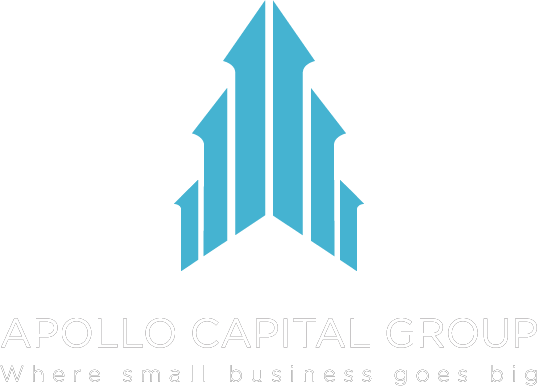You understand the significance of investing in new growth prospects since you are a business owner. Yet sometimes you may not have the necessary funds on hand to make these investments. A small business term loan might save your life in this situation.
Many connotations might be attached to loan words. It may, on the one hand, relate to the length of time you will take to repay your debt. On the other hand, it also alludes to the specifics of your loan (or terms and conditions), such as the sum of each monthly payment, when it is due, the interest rate, and any additional financial charges.
You may have thought about taking out a term loan for working capital if you’re seeking funding. But it’s crucial to comprehend what this kind of loan is and how it varies from other available possibilities before deciding. Continue reading!

What is a Term Loan?
Business term loan is a large sum of money you take from a lender and repaid over a predetermined time period. These loans are useful for a variety of purposes, including long-term investments in your firm.
The phrase “term loan” refers to a loan having a fixed payback time, which, depending on the loan type, might range from a few months to many years. The phrase “business term loan” is for indicating loans with terms of one to five years, even though term loans can have a range of durations
Term loans are available for both private and commercial purposes. For one-time projects or to foster long-term business growth, many business owners ask for term loans. The loans typically use for long-term expenditures like corporate development or modernization, or to buy fixed assets like land, buildings, or machinery. And they are also occasionally useful for project finance.
Understanding business term loans
- The banks grants term loans for a single year or for a maximum of 25 years. It eases the financial strain on enterprises. These loans are secure, and frequently pledge as a guarantee of repayment or as collateral to prevent default.
- Due to its length for interest-bearing loan repayment, term loans are advantageous. Short-term loans require the borrower to repay the principle in less than a year, whereas long-term loans provide them with more time to organize finances and make calculated payments.
- These loans are compulsory. After establishing, term loans need interest payments and principal repayments, regardless of whether the borrower is making a profit.
- After establishing, Term loans feature a fixed interest rate that agreed upon by the lender and borrower.
- According to the terms and circumstances set forth by the financial institution providing the loan, they are replaceable by equity.
Why choose Term Loan?
Term loans are popular among borrowers for several reasons, including:
- easy application procedure
- receiving a one-time payment in full
- certain payments
- decreased interest rates.
By taking out a term loan, a business can utilize its remaining cash flow for other purposes.
How does Term Loan work?
Banks, credit unions, and online lenders provide business term loans. The greatest rates and terms frequently offer by banks and credit unions, but they typically have strict criteria and need more time to finance. Online lenders, on the other hand, will likely cost more and have a shorter term, but they will provide greater flexibility and shorter borrowing durations. After choosing a business lender and gaining loan approval, you must agree to the interest rates and payback terms.
The rates you receive will depend on a variety of factors, including your financial history—both personal and business—cash flow, and the duration of your business. The typical payback time for a business term loan is three to 10 years. If you receive a fixed-rate loan, the interest rate will not change during the loan. With a variable-interest loan, your rate will change often.
Business term loans have the advantage of being flexible in how they are useful for funding a firm. As a result, you’ll discover that medium and long-term loans are also useful for the following purposes as opposed to short-term loans:
- Buying supplies or equipment
- Working money
- Renegotiating other commercial debts
- Recruiting personnel Fulfilling payroll or tax responsibilities
- Financing the growth of businesses
- Buying a property
- Financing all-encompassing long-term investments
What are types of Term Loan
Short Term Loan
Sort term loan is a contract between a borrower and a bank in which the client receives a loan amount in either local or foreign currency for a term of no more than one year. An agreed-upon rate of interest is applied to each individual withdrawal made under the loan. Working capital costs daily are ideal for short-term borrowing.
But you should anticipate paying higher rates because these loans are more accessible and simpler to qualify for. They are the quickest to finance and offer the most flexible credentials.
Medium Term Loans
Repayment periods for medium-term loans typically range from one to five years. Along with banks and credit unions, internet lenders also provide these loans. Regular weekly or monthly repayment schedules for medium-term loans make individual installments more reasonable.
These products are typically far more economical than short-term loans, even if they could have more stringent standards and fund more slowly.
Long Term Loan
An established firm with outstanding credit and a strong track record financially is a suitable candidate for a long-term loan. You can consider one to finance your company’s long-term expansion plans.
Long-term loans are hard to fund, require exceptional borrower credentials, and have favorable conditions for funding major projects like home purchases or company upgrades. Mostly typically, established lenders like banks and credit unions are the ones that give these term loans.
How do I qualify for Term Loan?
A term loan is a wise decision for a brief project or expenditure. For instance, a term loan might assist you in paying for expenses like inventory purchases or marketing campaign investments.
The same as with any other credit facility, business owners apply for term loans by contacting their lender. They must offer documents proving their creditworthiness, including statements and other financial proof. A large sum of money is given to accepted borrowers, who then have a certain amount of time to pay it back, often on a monthly or quarterly basis.
Term loans work best for well-established companies with a track record of sound financial management, as mentioned above. For those with bad credit or no company experience, being approved for a term loan could be too challenging.
Apply for Term Loan
If you decide a term loan would meet your financial needs, you can apply by following these steps:
- Analyze your credentials.
Verify your credit rating, yearly income, and length of operation. These are the top three criteria that lenders use to decide if you qualify for a business loan.
- Apply to many lenders.
Applying with many lenders will allow you to compare interest rates and repayment conditions and get the most inexpensive loan for your company. You won’t need to worry about it harming your credit score because many lenders will preapprove you for a loan with just a light credit check. Also, by submitting a single application through a loan marketplace, you might get various offers.
- Fill out and send the application.
Prepare the application materials for your chosen lender once you’ve made that decision. Business financial statements, personal and company tax returns, personal and business bank statements, and business legal papers are examples of often requested documents. Complete the application as directed by the lender and submit any required paperwork. Use whatever help the lender provides to get you through the application process.
Frequently Asked Questions
With a term loan, borrowers get a one-time payment in return for certain borrowing conditions. With either a fixed or variable interest rate, borrowers consent to pay their lenders a certain sum over a predetermined timeframe.
Personal loans, student loans, and most credit cards—all of which can be revolving or term loans—are all examples of unsecured loans.
Depending on the lender and loan type, the cost of a business loan might change significantly. The average interest rate for all small company term loans in the third quarter of 2022 was 5.39 percent for fixed-rate loans and 6.25 percent for variable-rate loans, according to the Federal Reserve Bank of Kansas City.
When they need money the most, New Jersey company owners rely on The Apollo Capital Group. Our business loan is a tool to help your company grow, whether it’s for operating capital, equipment acquisitions, particular business investments, or making a big purchase that can’t be made with a credit card.
Repayment refers to the act of returning money that has been borrowed from a lender. The return of funds often occurs through recurrent payments that comprise both principal and interest. The first amount borrowed in a loan is referred to as the principle.


